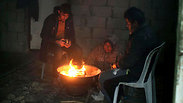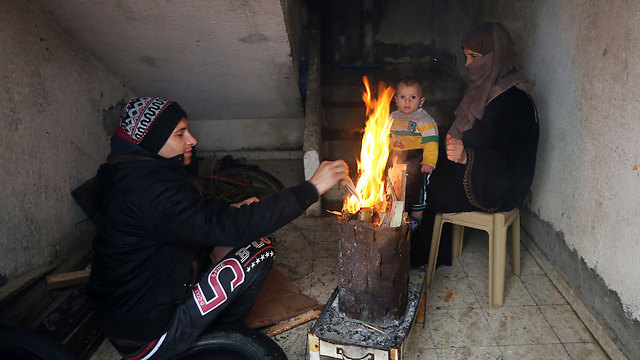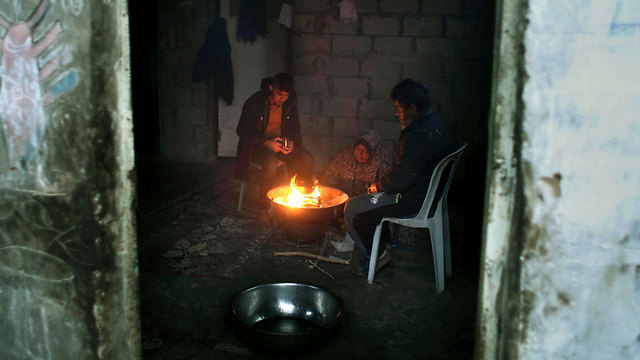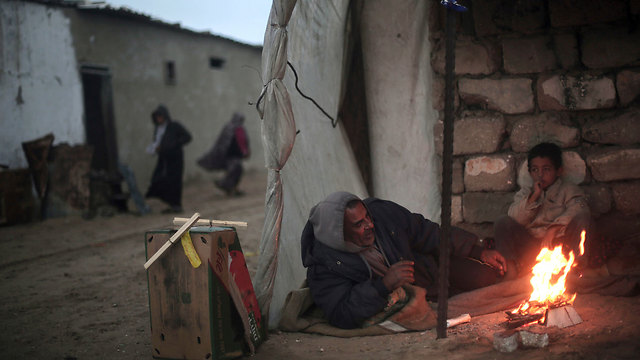
Gaza residents agog at potential power resumption
Residents of isolated enclave still in disbelief over expected resumption of full power supply from Israel to Gaza, increasing daily supply of power to 6-8 hours a day, instead of 3 hours at current levels; resumption made possible due to PA willingness to foot power bill to Israel.
Gaza residents found it hard to believe regular power supply will be restored to the strip Monday, following the Palestinian Authority's willingness to resume payments and Israel's subsequent decision to return power to normal levels.
"It's still hard to believe. Every time someone else—Hamas, Israel or the Palestinian Authority—trips this thing up. We'll believe it when we see it," said A., a Gaza resident.
"In any event," he added, "everyone here has heard the news and are hoping power will be restored."
A. explained the current rolling blackout policy in the Hamas-controlled enclave, as part of which the territory is supplied with electricity for four hours at a time, after which there is a 12-hour outage. "Now people are assuming power supply will go up to six hours and eight hours without power," he said.
Footage of Gaza residents coping without power Sunday (צילום: רויטרס)
Despite Gaza homes receiving power for only a handful of hours at a time, nearly every home or neighborhood has a diesel-powered generator purchased privately, which kicks in when the power goes off—giving each family a bit more time with power than one would otherwise assume.
While the initiative helps residents, A. noted, but it did have drawbacks. "Firstly, the permanent expenditure on fuel makes life in Gaza difficult. Another thing is the constant loud noise from the generators in residential areas," he said.
F., another Gaza resident, said the public was awaiting official word of the strip's electricity company. "A message is supposed to go out (Monday) explaining how the power will be divided between houses, and delineating power flow times according to different regions (each Gaza region receives power at different times of day—ed)," F. said.
The roots of the Gaza power crisis can be traced back a decade, but it has gotten worse this past summer as a result of seemingly endless disputes between Hamas and Fatah. Palestinian Authority President Mahmoud Abbas decided to halt the supply of fuel to Gaza's sole power station, which the Palestinians buy from Israel.
The Fatah chief's insistence came in the wake of Hamas's decision to cease payments of excise tax to the Palestinian Authority, despite the fact that the terrorist organization continued collecting monthly payments for power use from Gaza's residents.
The decision made by Ramallah a short time later, to halt monthly payments to the Israel Electric Corporation for supply power to Gaza through direct power lines, was only one of the sanctions levied by Abbas against Hamas, which created the shadow government that administrated the strip at the time.
While Israel did indeed decrease the flow of power on direct lines into Gaza, it did not cut it off completely. In effect, Gaza received 70 megawatts instead of 120, a 50-megawatt decrease.
The decrease and the power station running out of fuel led to Gaza residents receiving three hours of power a day on average, instead of six to eight before the crisis worsened.
Hamas understood both the decrease's ramifications and the subsequent pressure it may be put under to fix it, and has decided to buy fuel for tens of millions of shekels from Egypt to allow the power station to operate partially, thereby stretching the number of hours the average Gaza home received power.
As mentioned above, Israel is expected to resume full power flow through it lines to Gaza, following Abbas's decision to remove this particular sanction—but this sanction alone.

A scene in Khan Yunis Sunday
Photo: AP
מומלצים


















